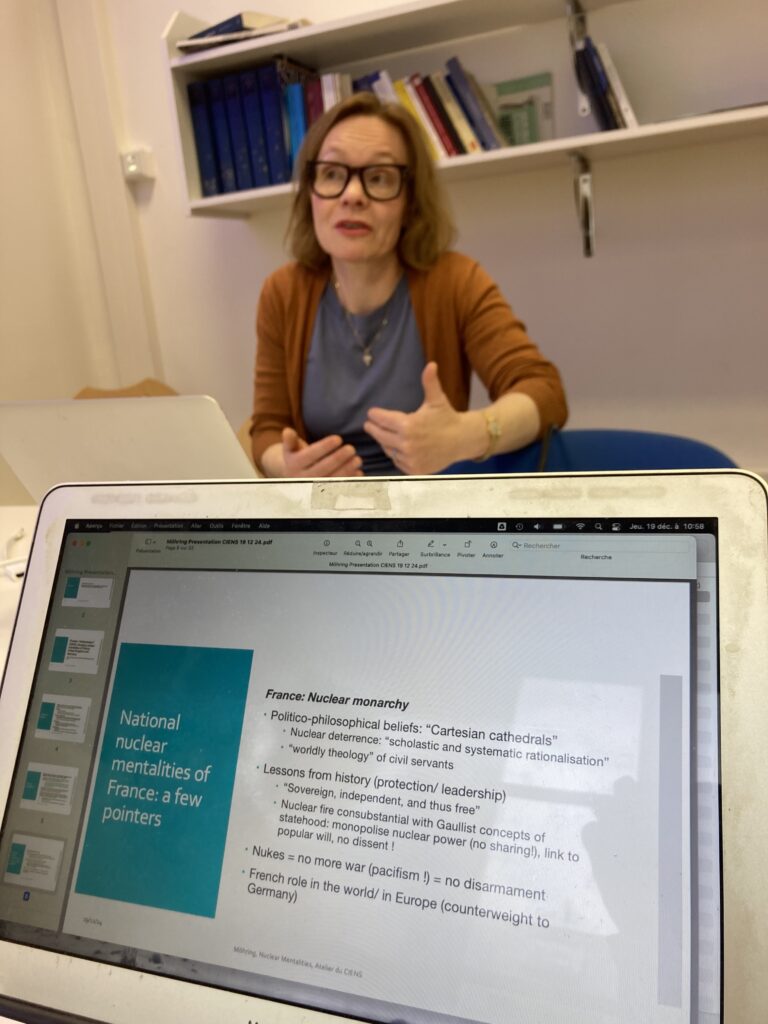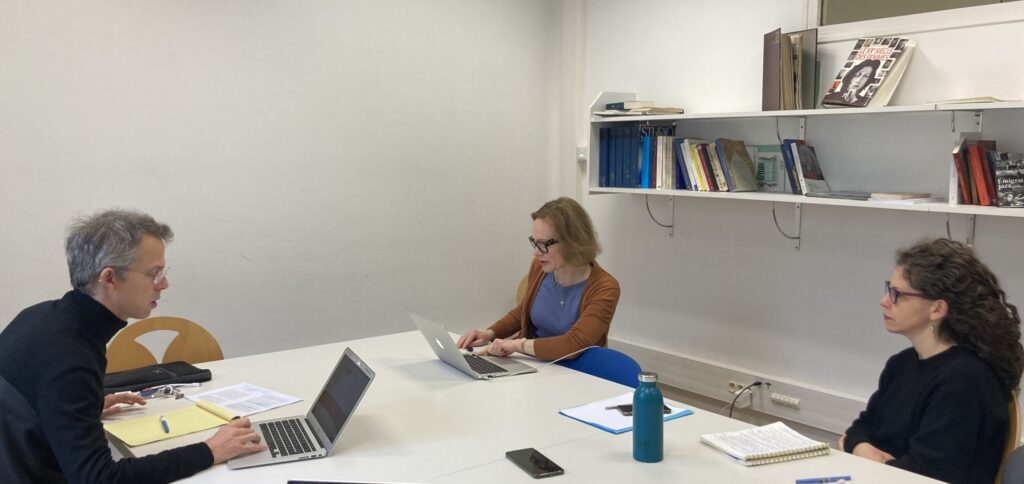As part of the research workshops organised by the Interdisciplinary Centre for Strategic Issues (CIENS), Johanna Möhring, PhD in political science and associate researcher, presents her latest paper: ‘Germany’s nuclear mentality in political party discourse: Continuity and change through crises’. She explains how German nuclear thinking has evolved since the end of the Cold War.

The concept behind the workshops, which are held four or five times a year, is to encourage the Centre’s researchers to share their current work (an article, a chapter from a book or thesis, a review) for an hour, and then to exchange ideas and questions, highlighting any echoes with their own research.
It’s a great way to get to know each other better and appreciate each other’s work on contemporary nuclear and strategic issues.

A reminder of this year’s sessions:
On 17 May 2024, Pierre-Louis Six, who was still a post-doc at CIENS, presented his research on MGIMO, the Moscow Institute of International Relations, and its influence on the development of foreign affairs in the USSR in the 1980s.
On 11 June, Frédéric Gloriant, Director of CIENS, shared his article on De Gaulle and Monnet faced with transatlantic nuclear dilemmas between 1956 and 1965.
On 25 June, Maïlys Mangin, at the time a post-doc at CIENS and now a lecturer at the University of Toulouse, spoke about her article on the nuclear dimension of transatlantic relations.

